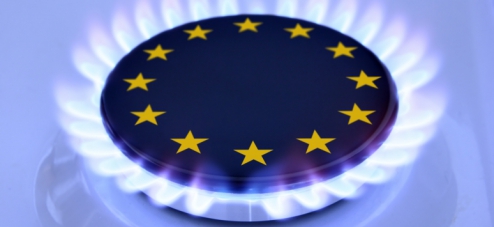EU Security of Gas Supplies : Solidarity Runs Through the Pipeline
Given the tensions between the EU and its main gas supplier, Russia, the European Commission has been revisiting since 2014 its energy security strategy.
Under the implementation of the Energy Union project, the Sustainable Energy Security Package was published in February 2016 by the European Commission. It consists of four proposals. Two of them have a legislative nature, namely a Regulation for Security of Gas Supply and a Decision on Intergovernmental Agreements on energy. The two non-legislative proposals are strategy papers dealing respectively with LNG and Gas Storage, and Heating and Cooling.
The purpose of this joint paper written by Ifri and CIEP is to focus on the proposed security of supply Regulation and to offer considerations on some of its provisions, in particular on the move from the national to the regional level of cooperation and on the legislative formalisation of solidarity.

Photo by Roman Sigaev
Introduction
The ongoing efforts to lessen the European Union’s (EU) vulnerability to gas shortages by adopting internal measures were triggered by the Ukrainian gas disputes of 2006 and 2009. The latter deprived several EU Member States of 20% of their gas supplies (30% of imports) for 14 days in the middle of winter due to tensions with Russia.1 This prompted Member States in 2010 to adopt a Regulation for the Security of Gas Supply, replacing the skeletal 2004 Directive.2 Since 2014, tensions have increased significantly between the EU and Russia, the block’s main gas supplier. Although this has not led to any gas supply disruptions in Europe, and this time Ukraine has been able to revert to reverse flows, national production and storage withdrawals to replace the Russian gas flows, there remains a perceived elevated risk of gas supply disruptions to the EU, especially by certain Member States.
This led the European Commission (EC) to publish its first-ever European Energy Security Strategy in May 2014,3 which was followed by the Gas Stress Tests of October 2014.4 In February 2015, the EC published its Energy Union Strategy Framework, which was strongly motivated by energy security concerns. In that context, the EC announced a series of proposals for its gas and electricity markets in 2016 and 2017, among which was the ‘Sustainable Energy Security Package’ (hereafter: Package).5 This Package, published in February 2016, consists of four proposals. Two of them have a legislative nature, namely a Regulation for Security of Gas Supply (hereafter: Regulation) and a Decision on Intergovernmental Agreements on energy. The two non-legislative proposals are strategy papers dealing respectively with LNG and Gas Storage, and Heating and Cooling.
The purpose of this paper is to focus on the proposed Regulation and to offer considerations on some of its provisions, in particular on the move from the national to the regional level of cooperation and on the legislative formalisation of solidarity.
Click here to continue reading the paper.
Marie-Claire AOUN, Daan RUTTEN


